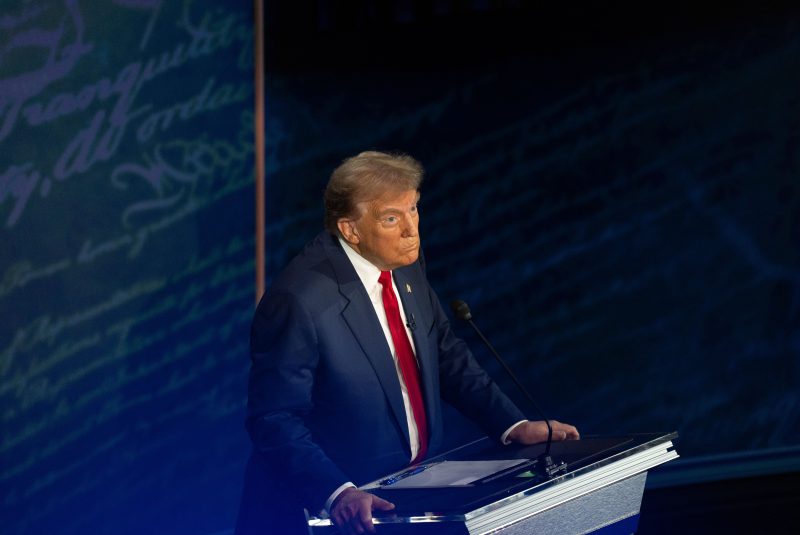In the landscape of modern media and information dissemination, the concept of real-time fact-checking has emerged as a powerful tool to hold public figures accountable for their statements and actions. The recent move by former President Donald Trump to wage a war against real-time fact checks highlights the contentious relationship between the political elite and the media, particularly in the age of social media dominance.
By scrutinizing the credibility of statements made by public figures in real-time, fact-checking initiatives play a crucial role in preserving the integrity of information shared with the public. In an era where misinformation and fake news abound, these fact-checkers serve as gatekeepers, separating fact from fiction and ensuring that the public is well-informed about critical issues.
However, the phenomenon of real-time fact-checking is not without its detractors, as evidenced by Trump’s combative stance against such practices. Critics argue that fact-checking can be biased or politically motivated, leading to a distortion of the truth and creating conflicts between different factions. Additionally, some view real-time fact-checking as an infringement on free speech, potentially stifling public discourse and debate.
Despite these criticisms, the role of real-time fact-checking in promoting transparency and accountability cannot be understated. By providing immediate feedback on statements made by public figures, fact-checkers help to prevent the spread of falsehoods and ensure that accurate information prevails in the public domain. This, in turn, enables citizens to make informed decisions and hold their leaders accountable for their words and actions.
In the realm of politics, the clash between politicians and fact-checkers is not a new phenomenon. However, the rise of social media platforms has accelerated the pace at which information is disseminated, leading to an increased demand for real-time fact-checking services. This trend has sparked debates about the responsibilities of social media companies in curbing misinformation and ensuring the accuracy of information shared on their platforms.
As the debate over real-time fact-checking continues to unfold, it is clear that this practice has become an integral part of the media landscape. While challenges and controversies persist, the fundamental goal of fact-checking – to ensure the accuracy and integrity of information – remains paramount. Moving forward, striking a balance between freedom of speech and the need for accurate information will be key to navigating this complex and evolving terrain.
